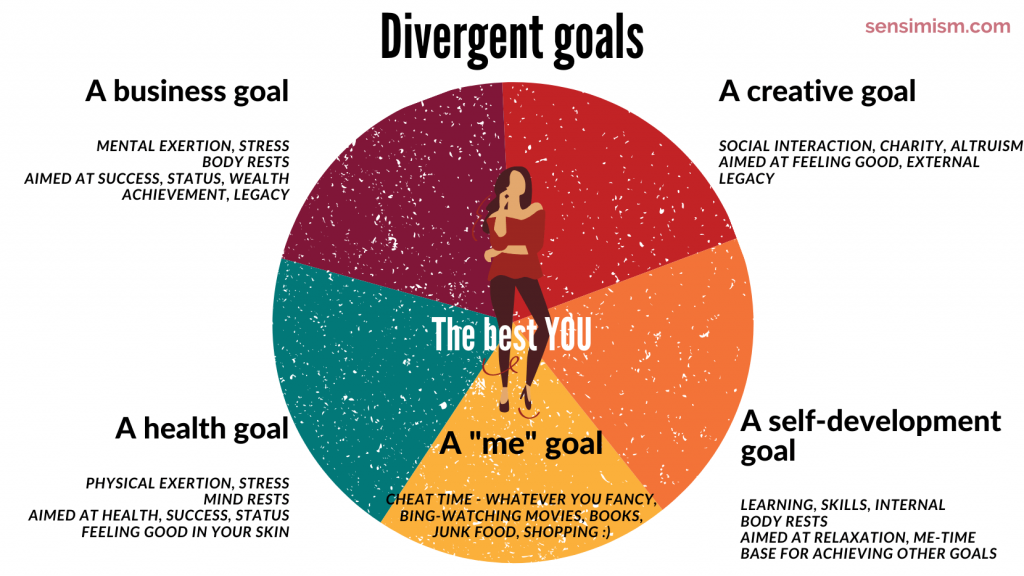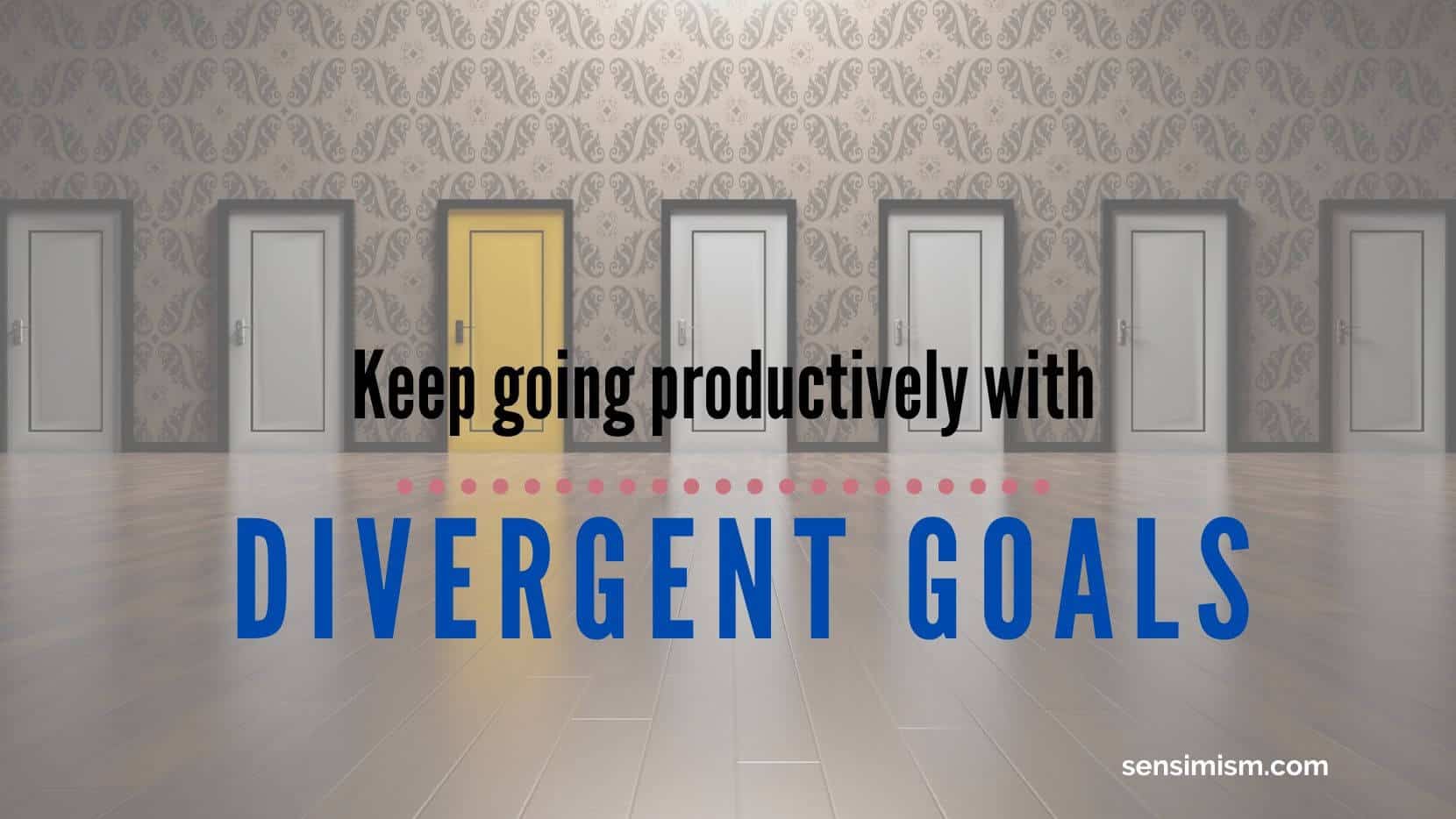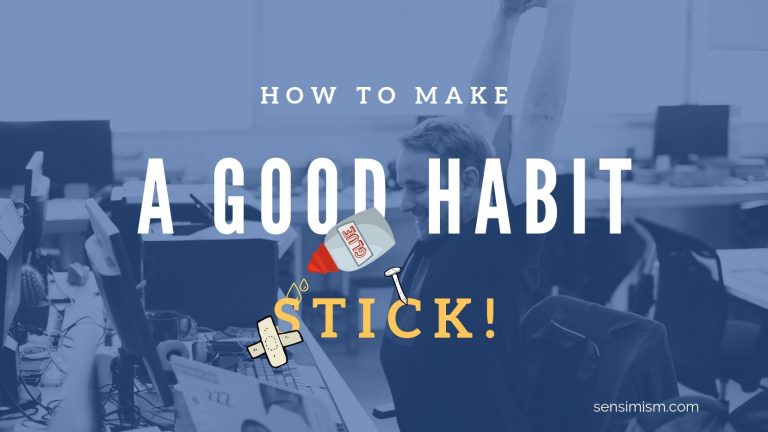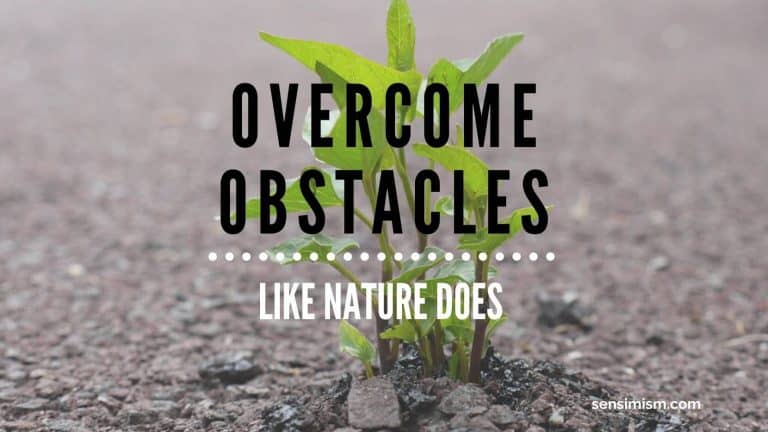Progress with Momentum: Strategies for Effective Goal Setting
You know those days, when you just really, really don’t feel like sticking to your exercise plan? Or working hard on your latest project to get it off the ground? We all have those days. Some less, others more. But there’s no need to stress about them – if you plan your goals the right way. How to never feel like you’re being a lazy bum…
Prefer listening? This episode is also available as a podcast here.
It’s ok to take a break sometimes
We are not computers. We don’t do the same thing, as instructed, over and over again without getting bored by it. Our willpower actually behaves like a muscle – it gets worn out over time. The more you flex it, the more it gets tired and needs to rest. Accept that and don’t beat yourself about it.
Yes, there are people who seem to thrive in a life composed of 80 hour work weeks, 6 hours of sleep and a high amount of stress. They are the outliers. You can either try to do what someone else, an outlier is doing, or you can listen to your body – it signals. If they tell you it’s fine to work more if you enjoy creating and building, the stress – then go ahead, work more. But much more likely, you will burn out like this and set yourself back, maybe even eliminating the progress of all the hard work before.
It’s far more likely that your body will tell you “enough of this” at some point. If it does – make sure it’s not just good old procrastination (oooh, there’s a shiny bauble, what’s that?) or laziness without a reason (meaning, you didn’t do much work yet, but you still feel lazy – opposite to feeling naturally lazy – in need of relaxation – after a hard days work). Listen to your body – it’s ok to have enough of something, especially if it’s repeated often – hard work, exercise, the same routine over and over.
You can break the routine etc by:
How to set goals tip 1: Have more goals to choose from
The first key thing when planning your goals is to have several of them. Don’t just have a single main goal and try to work towards it every day. That is exactly what is creating the problem mentioned above – on some days, you will have enough and want to skip everything related to that goal. And that’s fine.
The problem arises when you don’t have any meaningful activity to fill the gap with. You take a break from your goal #1 – maybe even relax a bit – but you don’t feel like going back just yet. What do you do?
How about working on an equally important goal #2? Or equally important goal #3? Have a few to choose from. Then, based on your mood and energy levels, you can work on the goal that suits you best at that moment.
This has two key benefits:
- you will take a break from the other goal, re-charging your batteries
- even whilst taking a break, you will still work towards another goal, therefore not wasting your time (nevertheless, it’s ok to waste time sometimes – but that’s a different story)
Ok, we now can take a break from a goal that’s stressing us out, but still keep working on another goal, so that we feel fulfilled at the end of the day regardless.
One last thing to make this work even better for you:
How to set goals tip 2: Have goals from divergent areas
You wouldn’t want to take a break from your fitness goal just to try to hit another fitness goal. That way you won’t rest and recharge. Or you won’t relax from work if you try to crack another business goal.
The best way to take a break but still be productive is to have more goals from divergent areas, aiming to use a different part of the body/different set of skills for each goal.
A sample of goals from divergent areas:
- one main health/fitness goal
- one main business/financial goal
- one main creative/fulfilment goal
- one main mental self-development/educational goal
Feel free to supplement substitute the goal area with whatever is the focus of your life. Of course, each of these main goals can (and should) have smaller and smaller achievable tasks you can tick off and feel good about.


Now, if my goals are set like above, if I am tired of all the fitness, I can sit down, relax and work on my educational goal of reading 35 books per year. Then I can roll my sleeves up and get some solid work done on my business goal. If I’m feeling stressed from work, I can use that anger towards my fitness goal with a good HIIT session. And after all this work and exercise, maybe I will crave being social, creative or just helping – I can go to the nearest charity and help out somehow. Or help a friend with something.
In other words – if you use your muscles in one goal, you can rest them later whilst working on a goal that requires your brain. And you can rest your brain in a goal that requires you just being there – helping out on a simple task (like helping to clean in a rescue centre).
This way you will never burn out – if you don’t feel like doing one goal, you will always have other goals to choose from, that will each give you a very different sense of satisfaction. You will never feel like you’re wasting time unproductively again.
With this system, you are always flexing some part of your intellect/body, alternating between them – so that each gets enough exercise, creating a well-rounded, healthy, successful yet altruistic intellectual. Not a bad place to be :).
Conclusion
- accept that you can’t work towards a single goal all the time and you will get tired/fed up eventually. To use that downtime productively:
- have more than just one goal – so that you can focus on another if you get tired with one. To make sure you have the energy to keep going:
- make each goal address a very different area of your life – one physical/fitness, one intellectual/educational, one financial/business, one altruistic – you get the drift. One goal uses a very different set of skills to others, so you will not wear out all your skills at the same time.






